
CINCINNATI — Monarch butterflies are beautiful creatures to watch, but it turns out your backyard lights may actually be confusing their senses. New research by a team at the University of Cincinnati has found that exposure to porch lights or even the glow of your cellphone can disorient monarch butterflies — making their internal GPS system go haywire.
“We found that even with a single work light that you find at a construction site, monarch butterflies treat that like it’s the sun,” says Patrick Guerra, a UC professor and co-author of the study, in a university release.
Artificial light at night messes with a butterfly’s circadian rhythm and the processes involved in when to take flight and when to rest. Monarch butterflies rely on specific proteins that fine-tune their internal compass and tell which direction to fly to the south and how to return. Nighttime light pollution could pose some risk to their annual migration from Canada to Mexico, where they spend the winter.
“It’s an important question given that many migrants fly through urban areas,” adds co-author Samuel Stratton. “Getting some ecological data would be really helpful to seeing what impacts light pollution can have on orientation and migratory outcomes.”
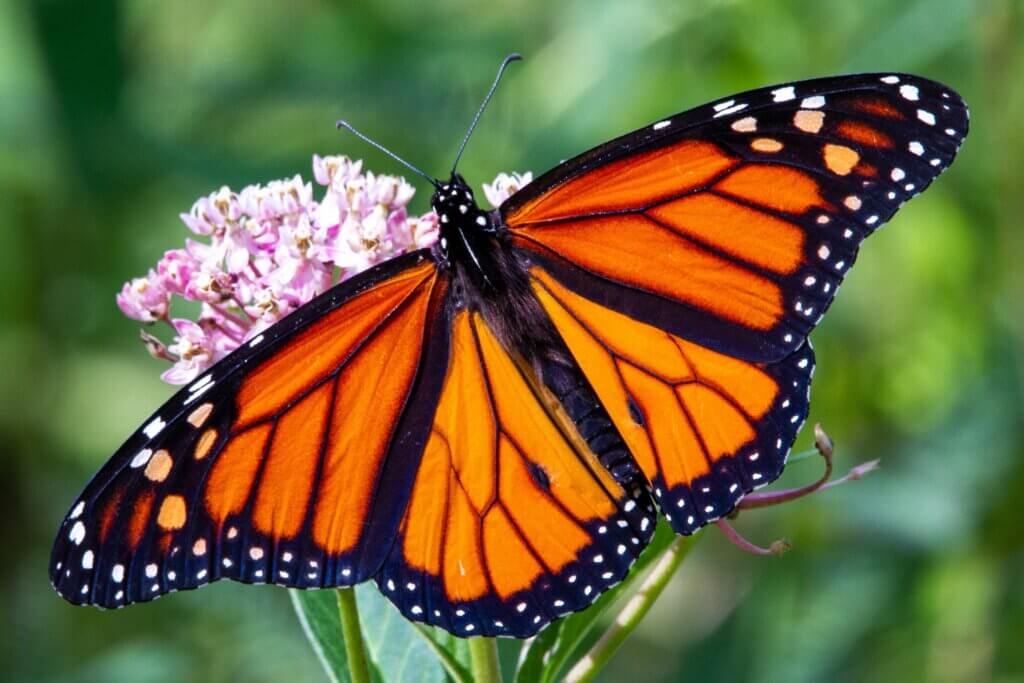
Millions of monarch butterflies travel about 2,500 miles to sites in Mexico. It is a long cross-country journey that takes about five generations to make the roundtrip. Their circadian rhythm uses a biological clock that collects information on the Sun’s position to orient themselves.
In the current study, the researchers simulated the effects of light pollution on migratory animals that are often active in the daytime. The results showed that a single light at night, such as a streetlamp, can shift their clock to thinking it’s daytime — throwing off their sense of time. Some butterflies with “jetlag” may think it is earlier or later in the day.
“We found that you’re messing with their day-night cycle. Light pollution can make them think that the day is longer or that the day starts sooner,” explains study co-author Adam Parlin.
The study authors suggest the best thing people can do to help monarch butterflies is to simply turn off the porch lights at night. “It’s something to think about if you’re making a pollinator garden or if you want to be eco-friendly,” Guerra suggests.
The study is published in the journal iScience. Continue below for more spectacular images of this beautiful insect.
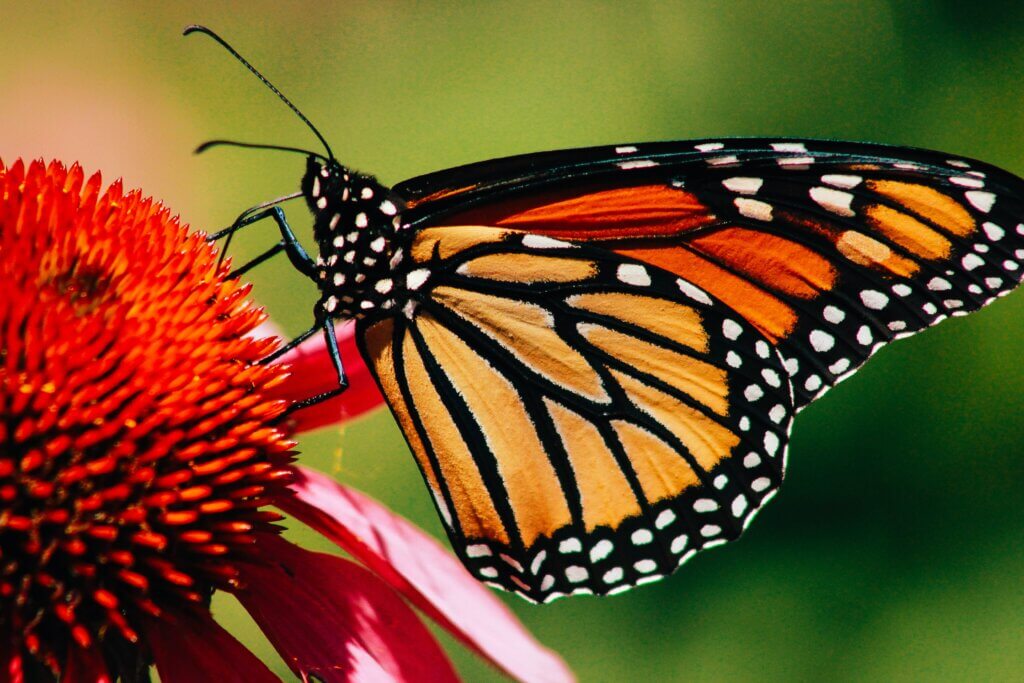
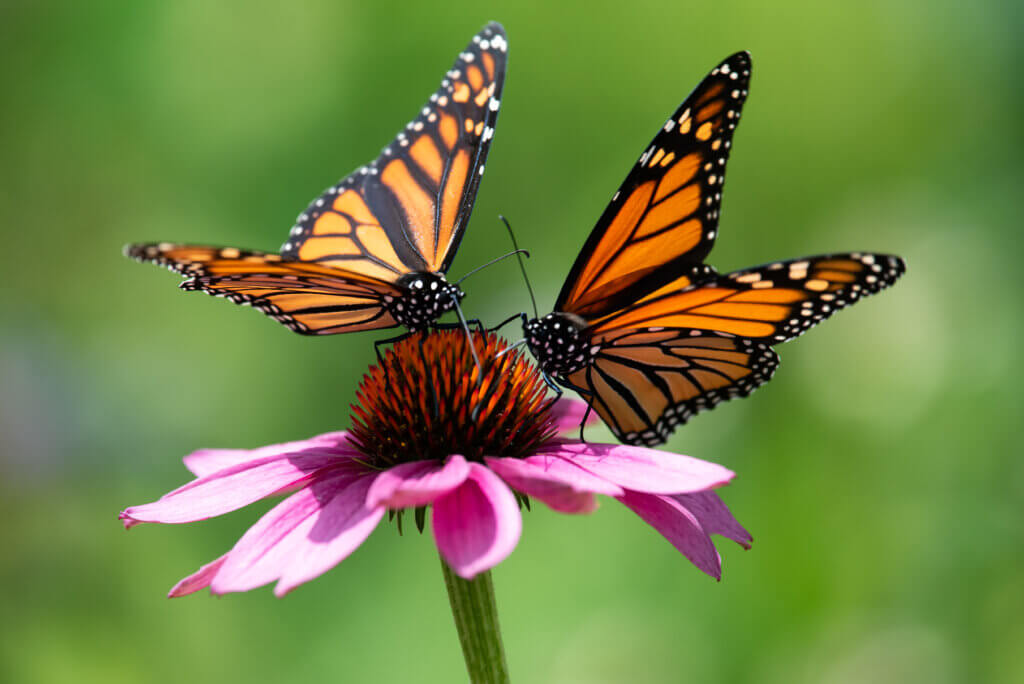
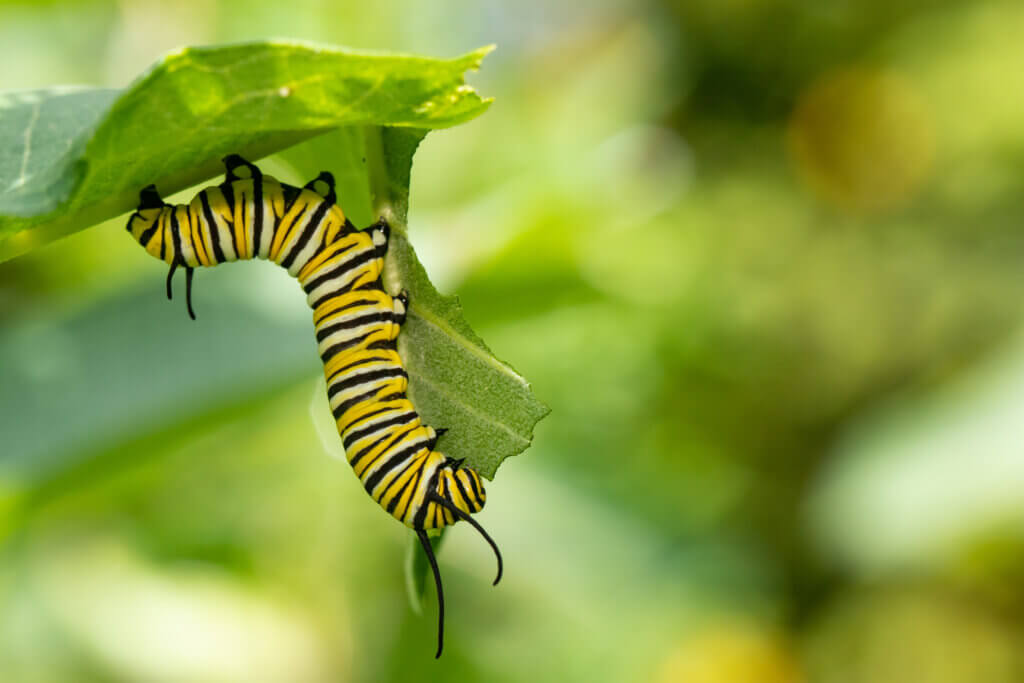
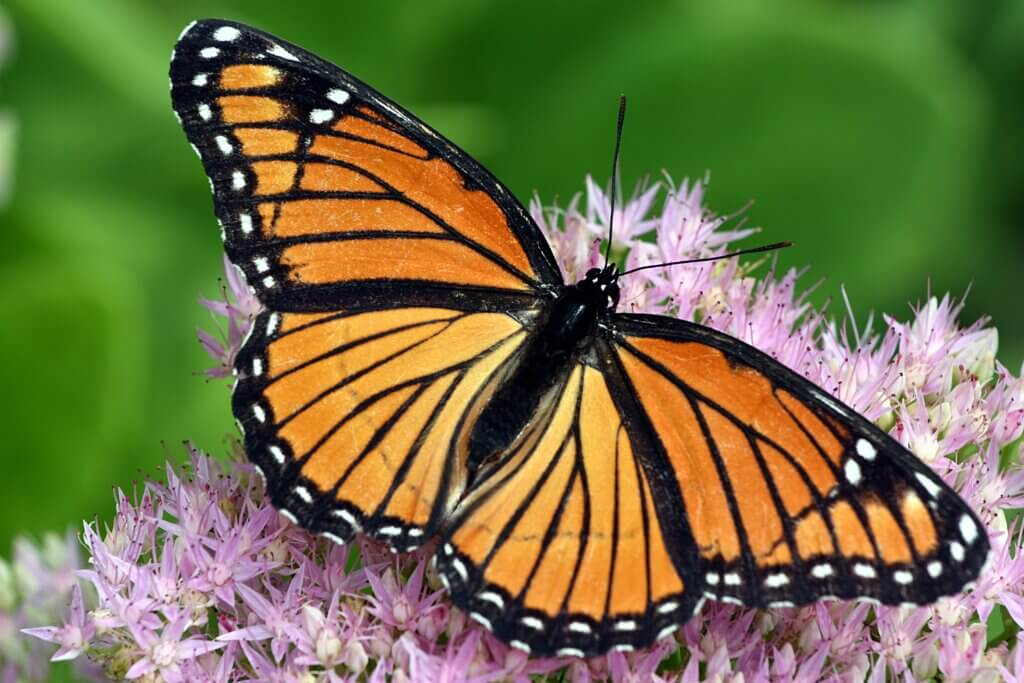
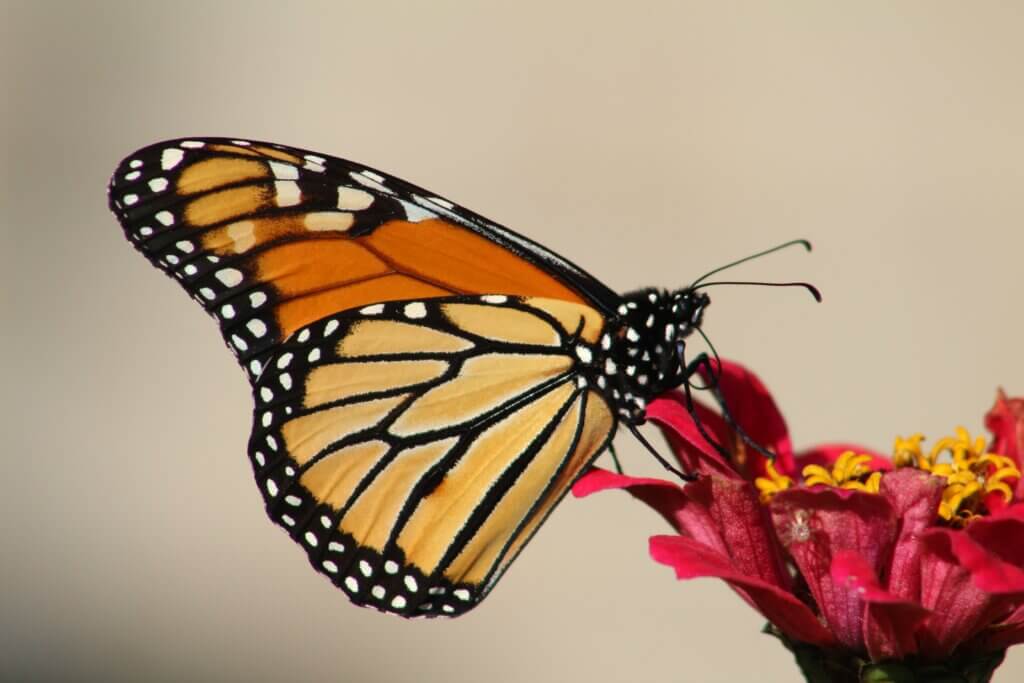
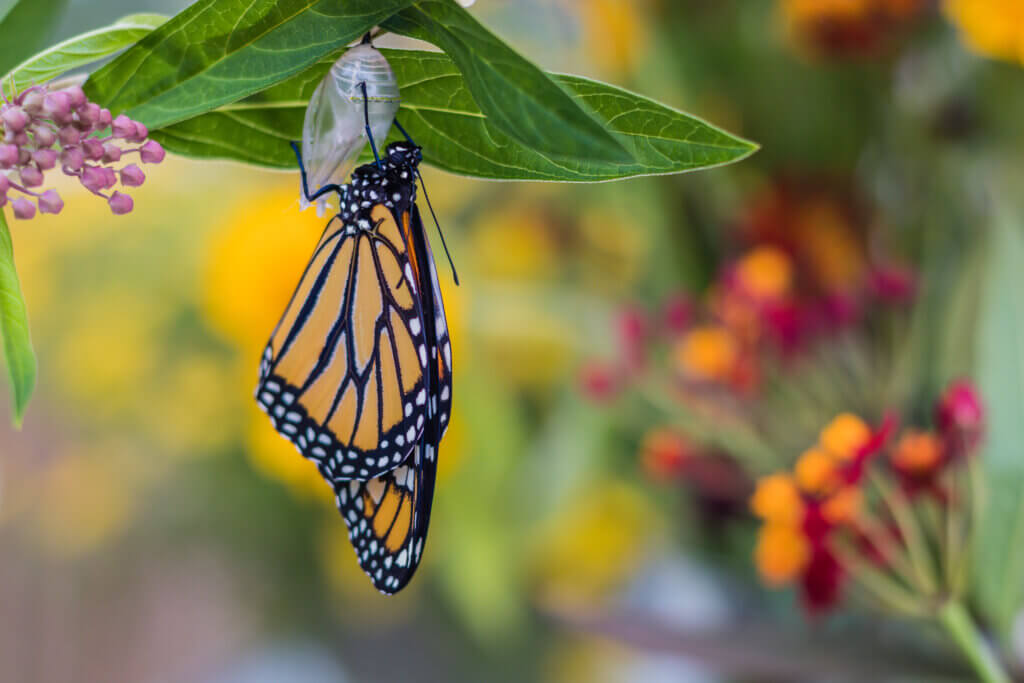
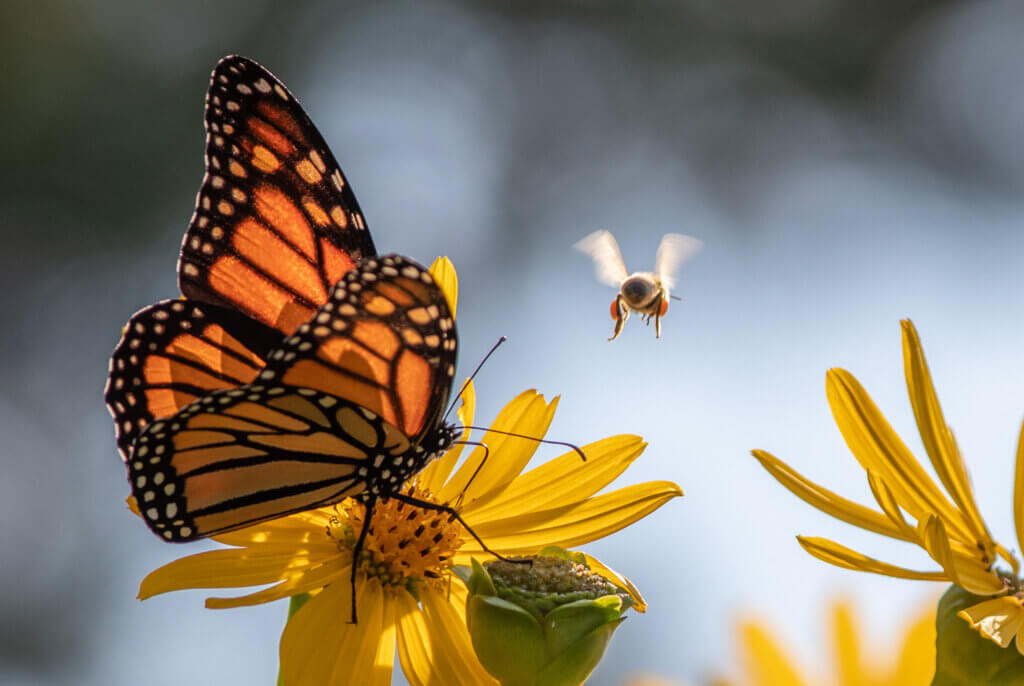
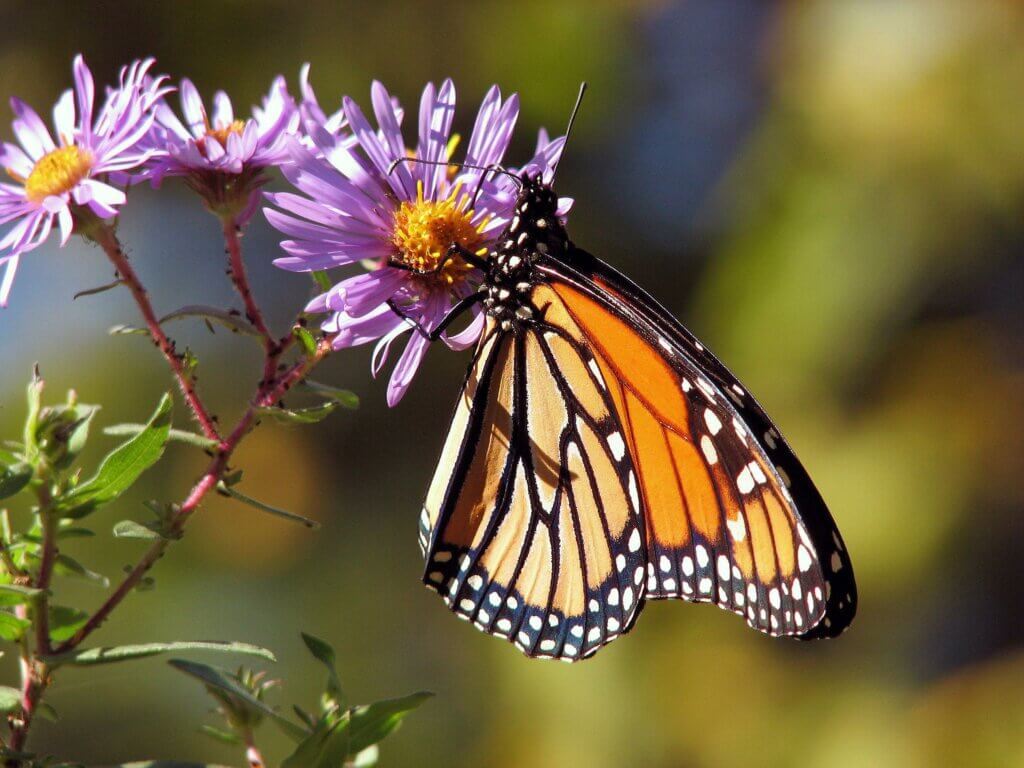
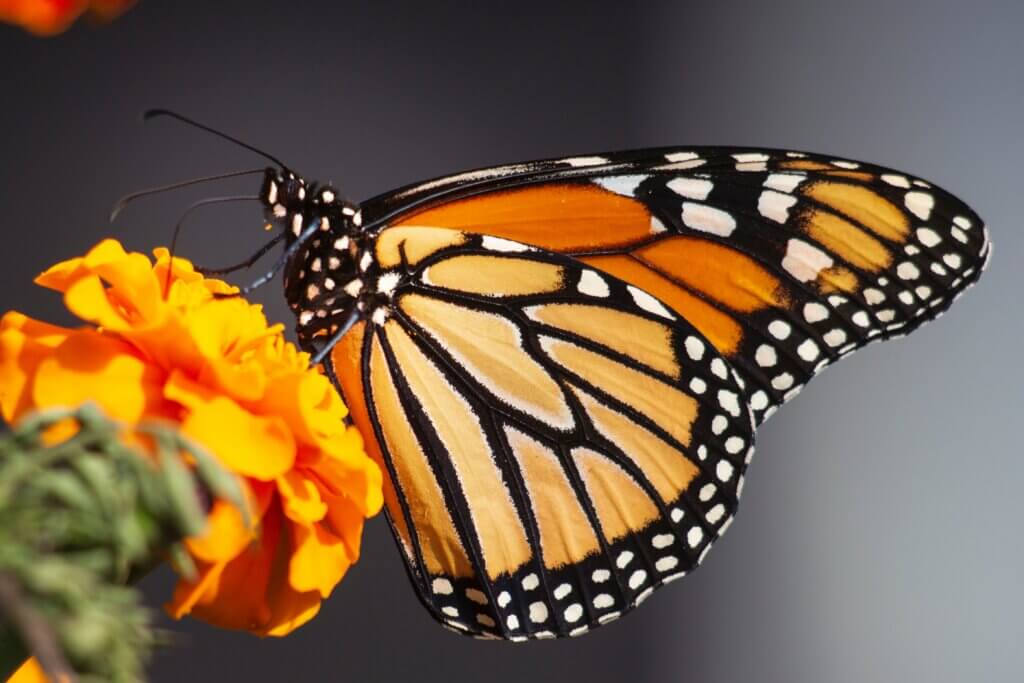
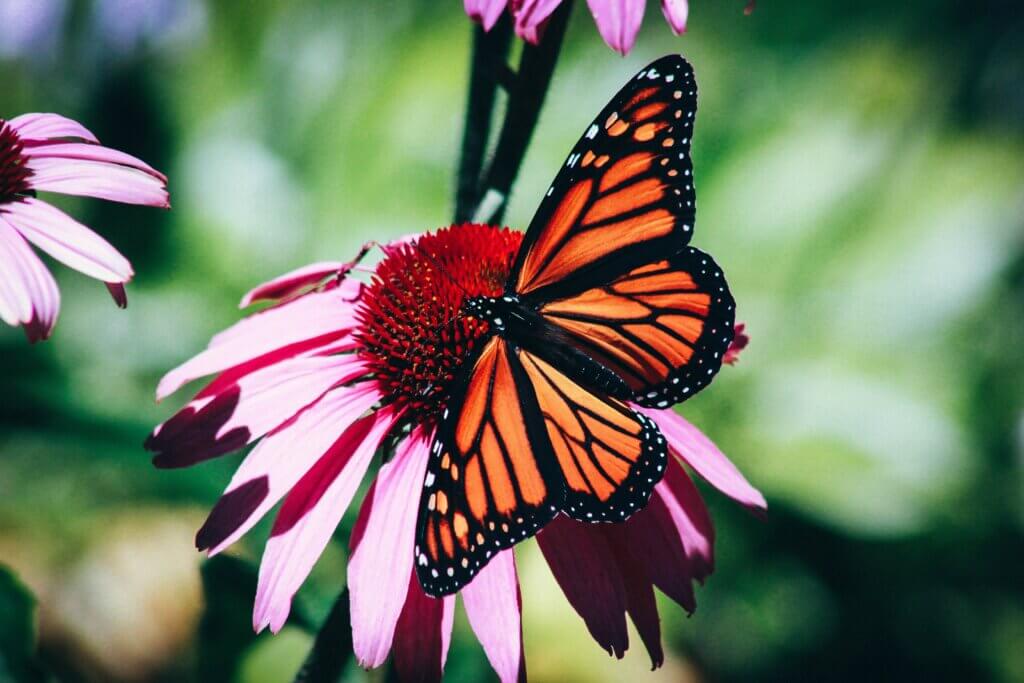
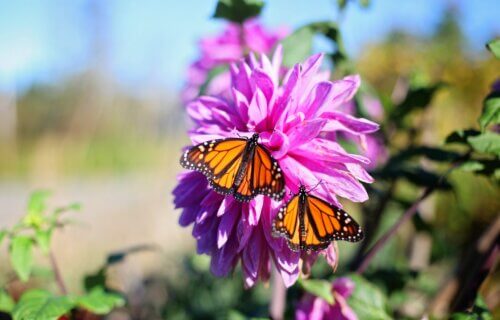
Two comments:
1. Did man just invent light?
2. Have you ever looked at a map of the World (or just the US) taken at night? Lots of dark places, in fact, most is dark. Only city dwellers have this problem.
Somebody’s fishin’ for a cushy grant….
Nope, 5G has nothing to with it, not the led lights, it must be man, man is the problem. Sigh*
God’s handiwork is more robust than porch lights and cell phones… but i see what the agenda is behind this; they want to control if you can have a phone, and when you can use it, and justification for them shutting it off.
I wish more people would turn off their outside lights at night. My neighbors seem to run a prison camp with the lighing they have recently installed. POINTNG diectly at the back of my house.
“The contents of this website do not constitute advice and are provided for [mis]informational purposes only.”
Gotta love the disclaimer on this website. But I fixed it for them.
Not one mention of OE in this article.
https://monarchjointventure.org/faq/what-is-oe#:~:text=Ophryocystis%20elektroscirrha%20(OE)%20is%20a,the%20outside%20of%20their%20bodies.
Fukushima radiation has effected the Pacific ocean taking out the bait fish starving the whales, salmon etc.. The radiation has an effect on the material in a butterflys wings- chitin. Look it up. Fukushima is still bleeding radiation in the ocean and will for decades. Remember this is Plutonium not the filtered water set for release that has Tritium radiation. As they want you to believe.
Milkweed loss. To develop land, people have plowed under milkweed plants which is where Monarch Butterflies lay their eggs. No milkweed, no eggs, no Monarchs. A California non-profit is reseeding milkweed and this year’s Monarch count is twice that of last year.
Sow more milkweed.